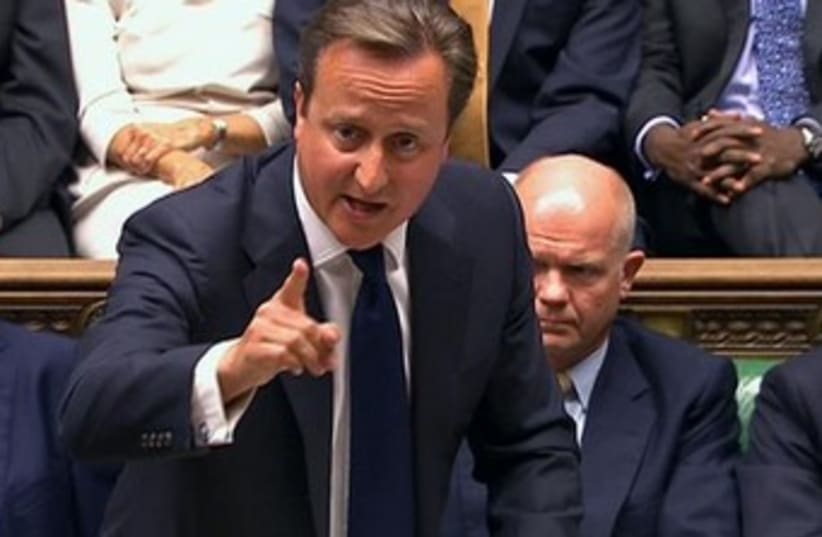Cameron asks UK Parliament to hold Syria accountable
British PM rolls back threats of imminent UK military action; says UK would wait for UN investigation team's findings and two votes in Parliament to authorize the use of force against Assad regime.
